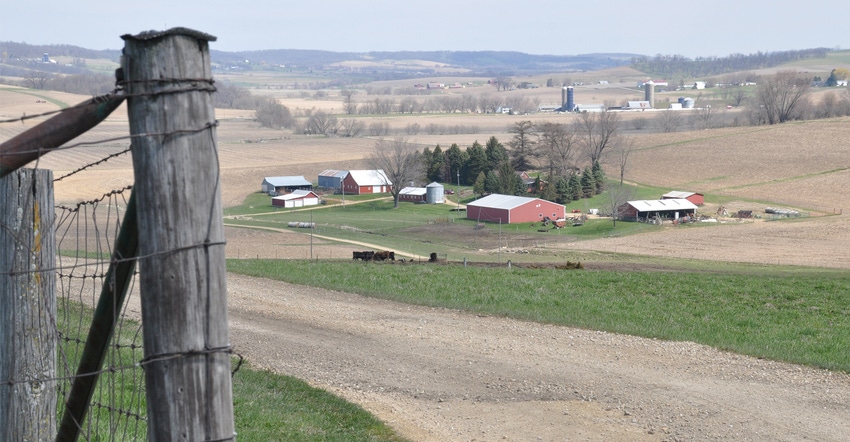August 11, 2021

What’s an estate planning catch-22? It’s finding the right balance between giving your beneficiaries control of their inheritance yet assuring that your hopes and dreams for your farm are achieved long after your death. It’s the dichotomy of trusting your beneficiaries versus controlling from the grave.
But those goals do not have to be in conflict.
If you read this column regularly, you know there are many reasons to leave your farm to your beneficiaries in trust. This is not about using a living trust, but rather designing a plan (probably within the terms of your living trust) that will, upon your death, create ongoing trusts for your heirs. We sometimes call those “beneficiary-controlled asset protection trusts.”
Two key benefits of such trusts are catastrophe protection and reducing taxes. Consider the farmer who inherited 400 acres in trust. She lives like she owns it but without fear of a lawsuit, divorce or nursing home taking it from her. She saves over $12,000 per year in income taxes, and depending on estate tax laws later, her heirs could easily avoid hundreds of thousands in estate taxes when she dies.
Those benefits of receiving the farm in trust are obvious and tangible.
But trusts also can provide a vehicle in which to place stipulations and conditions. In the extreme, you might say that particular land left in trust can never be sold, or that all money left in trust must be invested in two-year CDs, or in the family business. Maybe what comes to mind are trusts that give your children only the income, with the property eventually passing to the grandchildren.
You may recoil at such restrictions. Or maybe “control from the grave” is your middle name. If the latter, beware. If you try to exert too much control, the trusts you create for your heirs may offend them all, in which case it is highly probable that upon your death, they can and will get together and break it. The trust laws of Illinois (and most states) would permit that. Attempts at too much control will lead to those very efforts being invalidated.
Think carrot, not stick
A better approach for accomplishing your objectives is to think carefully about the advantages each child will get from their beneficiary-controlled asset protection trust. Create opportunities with checks and balances. Make sure everyone will benefit in ways that will appeal to them. Consider their natural desires. Nonfarmers receiving land might be inclined to accept rent income for life or might prefer to sell out. The farming child probably wants to acquire more or all of your land.
Design their trusts so those differing interests work in concert: If a nonfarmer wants to cash out, give him or her positive incentives to sell to the farmer on reasonable terms. Try to avoid forcing either to do anything, as force invites resistance. Just make it attractive for them to accommodate each other.
Assuming the trust permits a child to sell his share of the farm, then what? Does that trust simply end? No. The money comes to the trust and replaces the land that was in his trust. Allow the beneficiary, as trustee, to control how the funds are reinvested. By reinvesting within the trust, the assets remain protected.
Regardless of whether it is the land or the reinvested proceeds in the trust, how long can a beneficiary-controlled asset protection trust last? For as long as you want the tax advantages and protection to last. In other words, as long as your child hasn’t spent the inheritance, it ought to remain in trust.
Which brings me to a final point: When your child dies, probably 30 years after you, what will happen to the remaining assets? Do you think you should dictate that from the grave?
Requiring your child to leave what is left of his or her inheritance to your grandchildren in some pre-determined manner is, in my view, dangerous and presumptuous. You cannot know so far in advance what will be best for your grandchildren. Most children who inherit and have not blown the inheritance prior to their death probably deserve a say in how to best pass what is left to future generations.
A well-designed beneficiary-controlled asset protection trust will give them that privilege. If you don’t give them at least some control over what is left, you will give them one more reason to try to break your plan.
Ferguson is an attorney who owns The Estate Planning Center in Salem, Ill. Learn more at thefarmersestateplanningattorneys.com. The opinions of this writer are not necessarily those of Farm Progress/Informa.
About the Author(s)
You May Also Like






